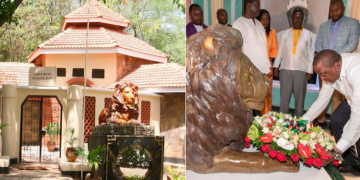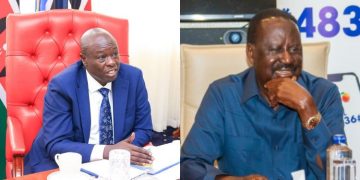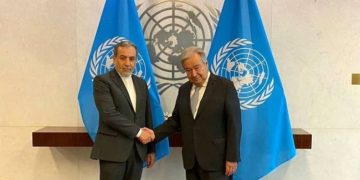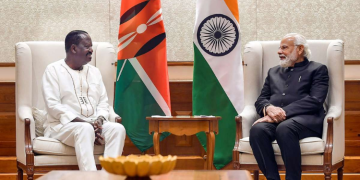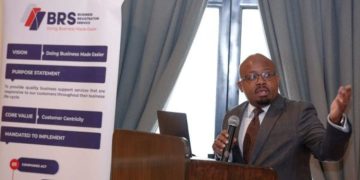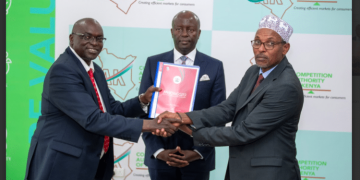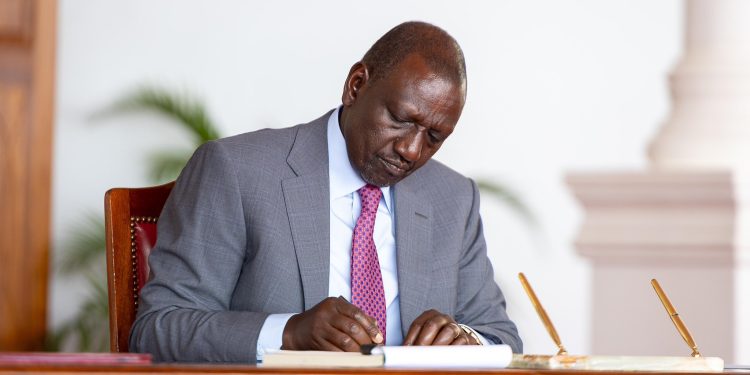In early October 2025, Pastor Robert Burale, the celebrity preacher and motivational speaker, sat for an interview with media personality Alex Mwakideu on the YouTube channel belonging to Alex. What began as a routine celebrity chat shifted dramatically when Mwakideu asked, “Why did you divorce my sister?” His sister, Rozinah Mwakideu, is Burale’s ex-wife.
Burale answered with restraint, acknowledging the challenges that led to the marriage’s collapse but maintaining respect for Rozinah. He even urged Alex to invite her on the show to share her side.
A week later, on October 4, Rozinah appeared on the same platform. Unfiltered and emotional, she declared that marrying Robert Burale was the worst decision of her life.
Social media erupted. Facebook timelines flooded with clips, X threads buzzed, TikTok reels dissected her remarks, and Instagram posts reignited the feud. Bloggers amplified her statements, and radio stations replayed snippets.
Commentators quickly divided: some defended Rozinah, arguing that she was simply exercising her constitutional right to free speech, while others accused her of defamation and of wounding Burale’s reputation.
For two weeks, the Burale-Mwakideu saga dominated online chatter. Then came the legal turn.
On October 9, 2025, Burale filed a defamation suit in Nairobi seeking KSh 20 million from both Rozinah and Alex, claiming the interview portrayed him as manipulative and hypocritical.
He accused Alex of professional negligence for airing unverified allegations and urging viewers to “share widely,” which, he argued, intensified reputational harm. The High Court certified the matter as urgent and scheduled a hearing for October 23.
Beyond the spectacle, this saga opens a deeper conversation: where does free speech end, and defamation begin?
Promoting Respectful Dialogue in Failed Marriages
Marital breakdowns are private, but when they spill into public view, pain multiplies. Still, dignity and fairness in public dialogue are not impossible.
Couples and interviewers can promote civility by setting clear boundaries, excluding children’s welfare, mental health, financial accounts, and intimate details, and committing to respect these zones by anchoring discussions in verifiable facts and avoiding sensational framing.
Also Read: Inside Law That Will See Kenyans Face Ksh 20 Million Fine or 10 Years Jail Over Online Posts
But these ideals confront real obstacles, such as power asymmetry, where one spouse may hold more power socially, financially, or communicatively, skewing public perception. Hurt and betrayal can overwhelm civility, and media outlets often reward outrage over nuance.
In a digital culture that feeds on spectacle, restraint has become a moral act.
Legal Implications of Public Figures Discussing Personal Relationships
When public figures publicly dissect their relationships, a dense legal terrain emerges.
The Oxford Dictionary defines defamation as the publication of an untrue statement about a person that tends to lower their reputation in the opinion of right-thinking members of the community.
Plaintiffs must show harm; defendants can defend themselves through truth, fair comment, or public interest.
Courts may order takedowns, injunctions, apologies, or damages, and may even hold interviewers or platforms liable if they negligently air defamatory claims.
In Burale’s petition, he seeks the deletion of the video, a prohibition of further shares, a public apology, and KSh 20 million in damages.
He argues that the video portrayed him as dishonest and morally corrupt, tarnishing his integrity as a pastor and mentor.
Public figures often claim their reputations are commercial assets; critics respond that fame invites scrutiny and that silencing criticism contradicts democratic openness. The courts must adjudicate this tension.
The Challenge of Balancing Free Speech and Defamation Laws
Balancing free expression and protection from defamation remains a democratic tightrope. Excessive protection of reputation stifles critique, while lax enforcement invites slander.
Even true statements can wound, and harmful speech may not always be false. Speech on matters of public interest deserves wider latitude, but courts must define that boundary.
They also weigh malice and recklessness, whether a speaker acted with ill intent or disregard for truth.
Defamation suits are expensive; many cannot afford to pursue or defend them. And in the age of instant sharing, even successful takedowns rarely reverse reputational damage.
Kenyan jurisprudence offers a few guiding precedents.
In the landmark Nicholas Biwott case (2000), the High Court awarded Biwott KSh 30 million after he was falsely linked to the murder of Dr. Robert Ouko, holding even bookstores liable for stocking the defamatory material.
More recently, in November 2023, activist Boniface Mwangi was found guilty of contempt of court in connection with defamation proceedings filed by Cabinet Secretary Alfred Mutua and was fined KSh 300,000, or two months’ imprisonment.
Also Read: Govt Starts Crackdown on Social Media Users Hours After Ruto Signs New Law
Additionally, in Elisha Ochieng Odhiambo v. Booker Ngesa Omole (2020–2021), the High Court ruled that Omole had published defamatory content about Odhiambo’s alleged misappropriation of school funds. The court awarded KSh 5 million in general damages plus KSh 1 million in aggravated damages, along with an injunction barring further defamation.
In 2025, Fred Obachi Machoka filed a defamation suit seeking Ksh 60 million from blogger Robert Alai, who had published allegations about Machoka’s health status.
These cases reveal how Kenyan courts grapple with truth, intent, public interest, proportionality, and other issues, but also expose inequities. But the legal standard remains inequitable: fame and wealth often determine which side holds more power in court.
Walking the Tightrope in a Digital Age
The Burale-Rozinah saga is more than tabloid intrigue; it mirrors our digital democracy.
Kenya’s Constitution is argued as among the most progressive in Africa. It grants citizens broad freedoms. Through Articles 32, 33, and 34, it protects the freedom of conscience, religion, belief, and opinion (Article 32); the freedom of expression (Article 33); and the freedom and independence of the media (Article 34).
Yet those same freedoms come with responsibility. Speech is a right, not a license to destroy.
If we value dialogue over gossip, we must demand responsibility from media platforms and digital creators. We must cultivate norms that value truth, fairness, and context over virality. Public discourse needs ethics, not just law.
Free speech is a right; defamation is a consequence. The tightrope we walk demands humility, restraint, and respect. Our society must learn to speak boldly, listen carefully, and protect dignity, even amid broken relationships.
Follow our WhatsApp Channel and X Account for real-time news updates.

